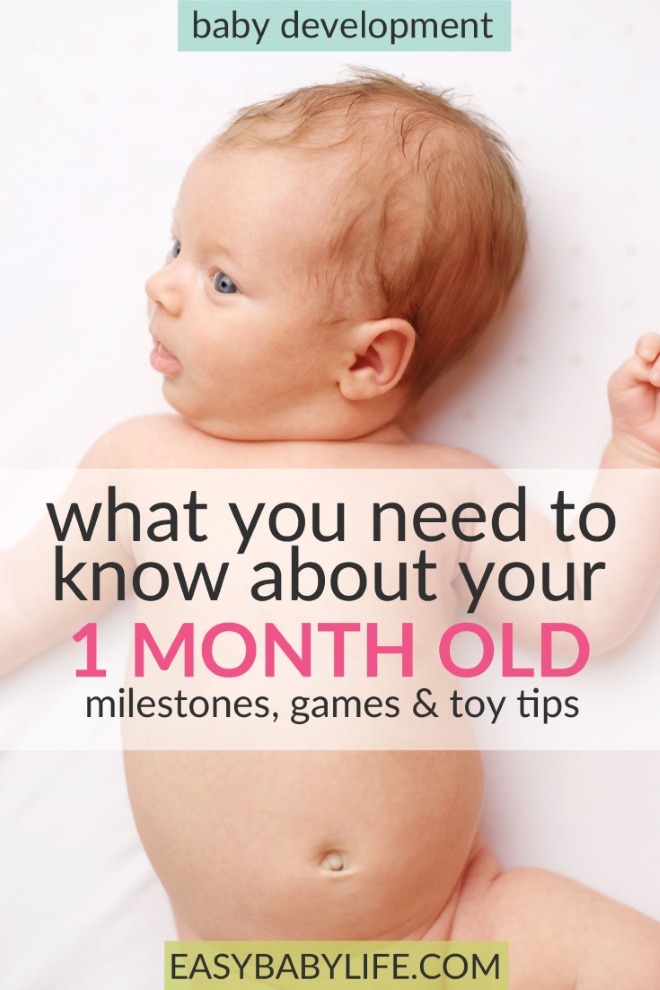At one month, your baby is still adjusting to life outside of the womb. Their development is rapid and exciting to witness. Here’s what you can expect in terms of their growth and milestones.
Table of Contents
Physical Development

Physically, your baby will continue to grow in length and weight. By the end of their first month, they may have gained up to two pounds and grown up to two inches in length. Their neck muscles will also be getting stronger, allowing them to lift their head for brief periods of time when placed on their stomach.
Sleep

At one month, your baby will still be sleeping for most of the day, but they may start to have longer periods of wakefulness. They may also start to develop more predictable sleep patterns, which can be helpful for parents.
Feeding

During their first month, your baby will likely be feeding every two to three hours, and consuming between 1.5 and 3 ounces of milk during each feeding. If you are breastfeeding, your baby may feed for longer periods of time, but with less frequency.
Cognitive Development

While your baby’s cognitive development is still in the early stages, they will start to show some signs of awareness of their surroundings. They may turn their head towards sounds, and start to recognize familiar faces and voices.
Social Development

At one month, your baby is still too young for socializing, but they will start to develop a bond with their primary caregiver. They may also start to show some facial expressions, such as smiling or frowning.
Gross Motor Skills

While your baby’s gross motor skills are still in the early stages, they will start to make more purposeful movements with their arms and legs. They may also start to kick and move their legs more vigorously.
Fine Motor Skills

At one month, your baby’s fine motor skills are still developing. They may start to open and close their hands, and grasp objects placed in their palm.
Language Development

While your baby is still too young to speak, they may start to coo and make other noises in response to your voice. They may also start to imitate facial expressions and gestures.
Conclusion
Your baby’s development during their first month is both rapid and exciting. While they are still adjusting to life outside of the womb, they will start to show signs of awareness of their surroundings and develop a bond with their primary caregiver. As a parent, it’s important to provide a safe and nurturing environment for your baby to thrive and grow.
Meta Description
Meta Keywords
Frequently Asked Questions
Q: How often should I be feeding my one-month-old baby?
A: Your baby will likely be feeding every two to three hours, and consuming between 1.5 and 3 ounces of milk during each feeding.
Q: When will my baby start to sleep through the night?
A: While every baby is different, most babies will start to sleep for longer periods of time at around three to four months old.
Q: How can I help my baby develop their gross motor skills?
A: Providing plenty of tummy time and encouraging your baby to kick and move their legs can help them develop their gross motor skills.
Q: When will my baby start to talk?
A: While every baby is different, most babies will start to say their first words at around 12 months old.
Q: How can I provide a safe and nurturing environment for my baby?
A: Providing a clean and safe living space, responding promptly to your baby’s needs, and giving them plenty of love and attention can all help provide a safe and nurturing environment for your baby.
